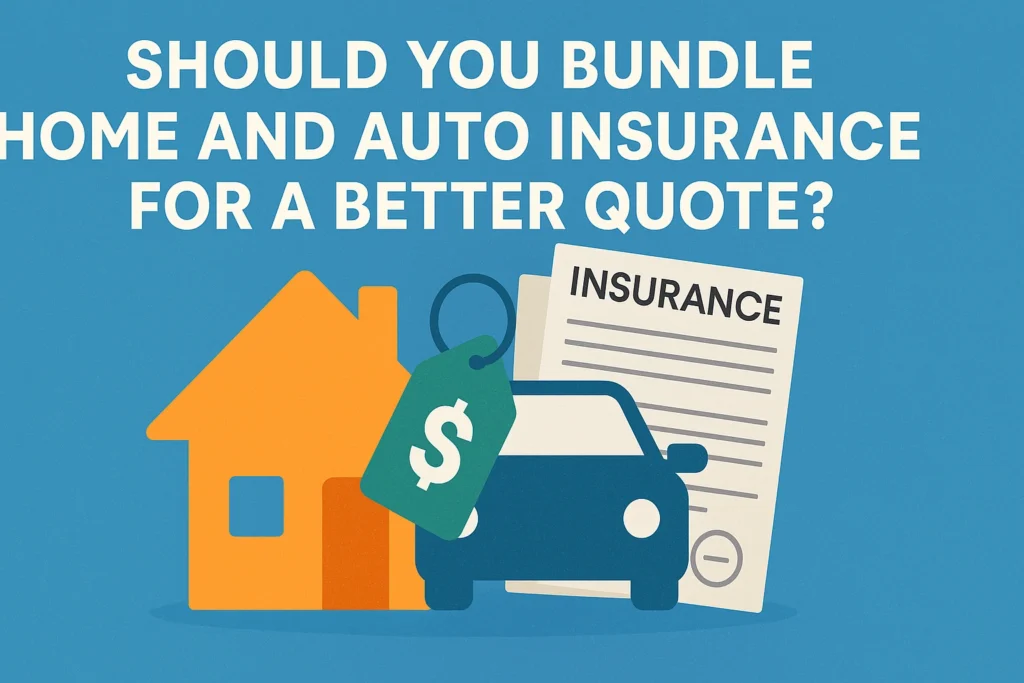Table of Contents
Getting an auto insurance quote might sound like a small step, but it’s actually one of the smartest financial decisions you can make as a driver. Whether you’re buying your first car, switching providers, or just curious about saving some money, understanding how quotes work can help you make the right call.
Think of it like shopping for shoes — you wouldn’t just buy the first pair you see, right? You’d check the size, style, comfort, and, of course, the price. Getting an auto insurance quote is quite similar — it helps you find coverage that fits your budget and your life.
In this guide, we’ll break down everything you need to know about auto insurance quotes — how they work, how to get them, what affects their price, and how to make the best decision for your wallet and your peace of mind.
What Is an Auto Insurance Quote?
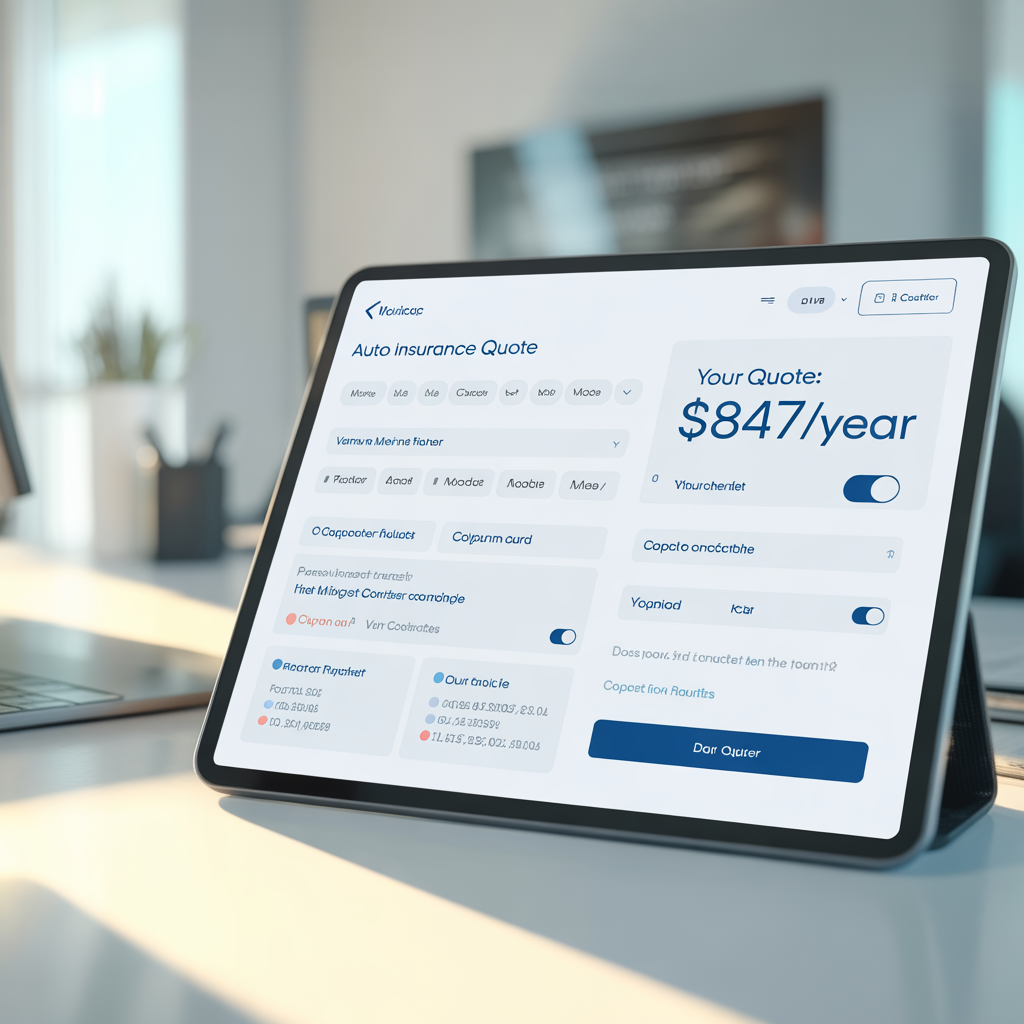
An auto insurance quote is an estimated price an insurance company gives you based on details about you and your vehicle. It tells you how much you’ll likely pay for your insurance coverage each month or year.
It’s important to remember that a quote is not a final price — it’s an estimate. The final premium may vary once the insurer verifies your driving record, credit score, and other details.
Simply put, an auto insurance quote is like a sneak peek of your potential car insurance bill. It’s your way to compare prices before committing.
Why Getting Multiple Quotes Matters
Have you ever bought something only to find it cheaper somewhere else? The same applies to auto insurance. Different companies use different formulas to calculate risk. That means your rate can vary widely — sometimes by hundreds of dollars — for the same level of coverage.
Benefits of Comparing Quotes
- Saves Money: You can easily find cheaper options for the same coverage.
- Increases Awareness: Helps you understand what factors affect your rate.
- Empowers Choice: Gives you control to pick what best fits your lifestyle and needs.
Getting multiple quotes is like checking out different stores before buying a phone — you’re ensuring you get the best deal possible.
Factors That Affect Your Auto Insurance Quote
Insurance companies don’t just pull a number out of thin air. They use several factors to determine your quote. Here are the key elements that influence how much you’ll pay:
1. Your Driving Record
Your history behind the wheel matters. Accidents, speeding tickets, or DUIs can raise your rate. On the flip side, a clean record can earn you discounts.
2. Age and Experience
Younger drivers typically pay more because they’re considered riskier. Experience brings lower rates as insurers see seasoned drivers as safer.
3. Type of Vehicle
Luxury cars, sports models, or vehicles with high repair costs tend to have higher premiums. On the other hand, safety-rated cars might earn you discounts.
4. Location
Where you live plays a role too. Urban areas with more traffic and theft tend to have higher rates than rural towns.
5. Credit Score
In many regions, insurers consider your credit score. A good score may indicate financial responsibility, leading to better rates.
6. Coverage and Deductibles
The more coverage you choose, the higher your premium. Raising your deductible (the amount you pay before insurance kicks in) can reduce your monthly cost.
Types of Auto Insurance Coverage
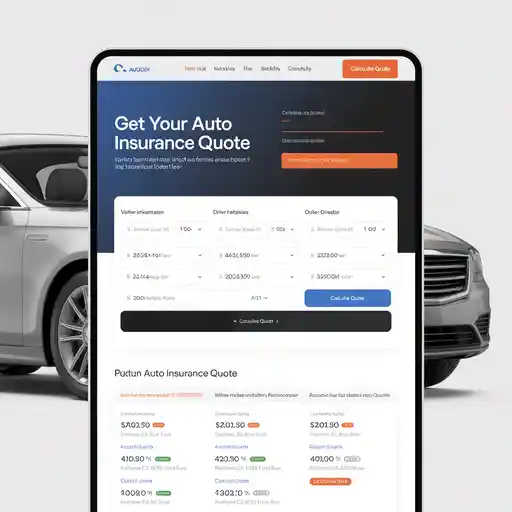
Before getting an auto insurance quote, it’s vital to understand the main types of coverage available. This helps you choose what’s necessary and what’s not.
1. Liability Coverage
This is the most basic and often legally required type. It covers damages you cause to other people or property.
2. Collision Coverage
It covers the cost to repair or replace your car if you’re in an accident, no matter who’s at fault.
3. Comprehensive Coverage
This protects you against non-collision incidents — like theft, fire, vandalism, or natural disasters.
4. Personal Injury Protection (PIP)
Covers medical expenses for you and your passengers after an accident.
5. Uninsured/Underinsured Motorist
If the other driver doesn’t have insurance or enough coverage, this type helps pay for your damages and injuries.
Understanding these types helps you make smart choices and avoid paying for what you don’t need.
How to Get an Auto Insurance Quote Step-by-Step
Getting a quote today is easier than ever. You can do it online, over the phone, or through an agent. Here’s a simple step-by-step guide:
Step 1: Gather Your Information
You’ll need:
- Driver’s license
- Vehicle information (make, model, year, VIN)
- Driving history
- Address
- Desired coverage levels
Step 2: Visit Comparison Websites or Insurer Sites
Websites like Progressive, Geico, or State Farm let you enter details once and receive multiple quotes in minutes.
Step 3: Review and Compare
Compare not only prices but also coverage, deductibles, and customer reviews. The cheapest isn’t always the best.
Step 4: Contact Agents (Optional)
If you prefer a personal touch, call or meet an agent. They can clarify fine details and suggest better packages.
Step 5: Finalize Your Choice
Once you’re satisfied, finalize your policy and make your first payment. Congratulations — you’re insured!
Online vs. Agent Quotes: Which Is Better?
Both have their perks, and the best option depends on your comfort level.
Online Quotes
- Quick and easy
- 24/7 access
- Lets you compare many options at once
Agent Quotes
- Personalized service
- Great for complex coverage
- Helps with unique cases like multiple vehicles or commercial use
If you’re tech-savvy and confident, online works best. But if you value advice and personal guidance, an agent might be your ideal partner.
Tips to Lower Your Auto Insurance Quote
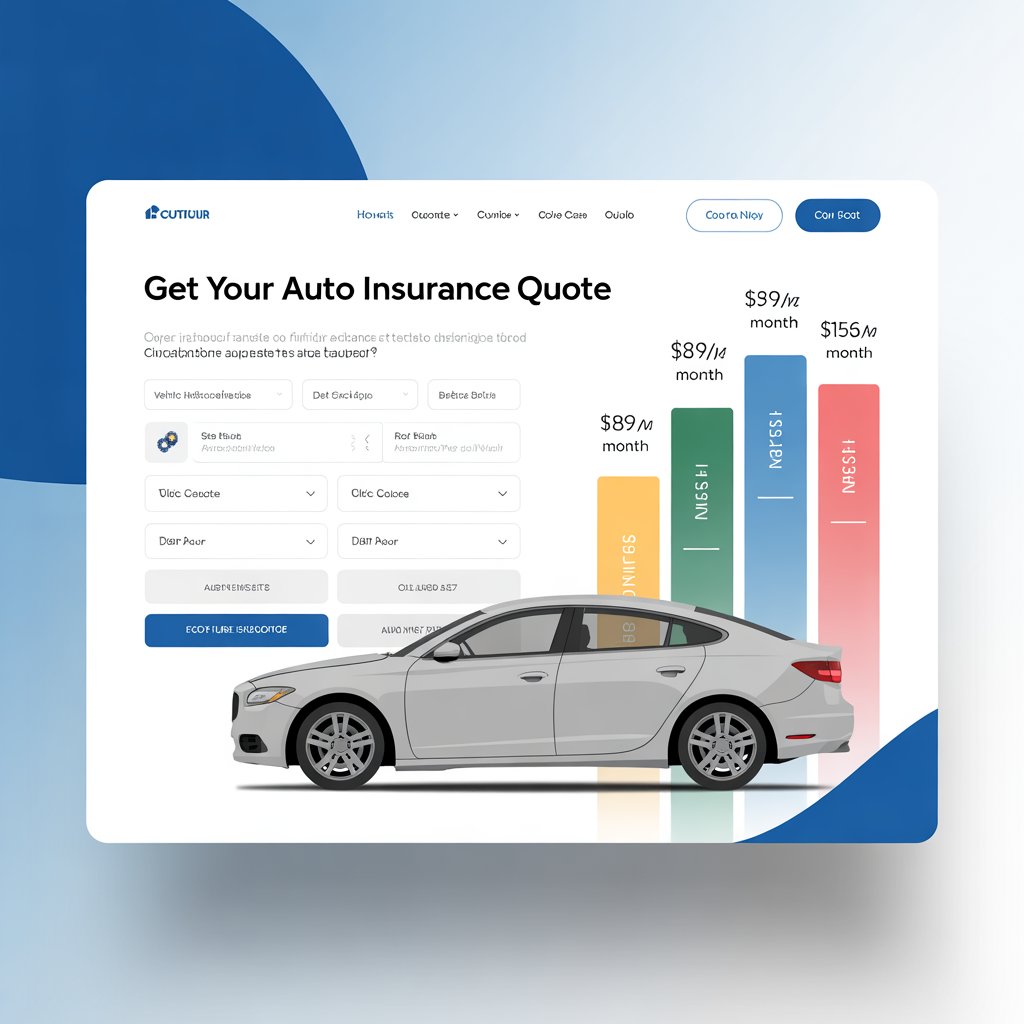
Nobody likes paying more than necessary. Here are smart ways to lower your insurance costs:
- Bundle Your Policies: Combine car, home, or life insurance with the same company to earn discounts.
- Increase Your Deductible: Higher deductibles mean lower premiums — but make sure you can afford them.
- Maintain a Good Credit Score: A higher score often means better rates.
- Ask for Discounts: You might qualify for safe driver, student, or loyalty discounts.
- Drive Safely: Avoid accidents and tickets — they directly impact your future quotes.
It’s like dieting for your wallet — small, consistent habits can save you hundreds over time.
The Role of Technology in Getting Quotes
Technology has made getting quotes faster, smarter, and more personalized. Many insurers now use AI tools and telematics to offer dynamic pricing.
Telematics devices or apps track your driving habits — like speed, braking, and mileage — and reward safe behavior with lower rates.
Some companies even use chatbots and AI assistants to help customers understand coverage better. The process is no longer confusing or time-consuming; it’s becoming as simple as ordering pizza online.
Common Mistakes People Make When Getting Auto Insurance Quotes
Even smart shoppers can make errors that cost them money. Here are a few to avoid:
- Providing incorrect information: Always be honest about your driving record and mileage.
- Choosing only the cheapest option: Low prices might mean limited coverage.
- Ignoring discounts: Many forget to ask about available savings.
- Not reviewing annually: Your life changes — your policy should too.
Avoiding these mistakes can help you secure accurate and fair pricing.
How Often Should You Request New Auto Insurance Quotes?
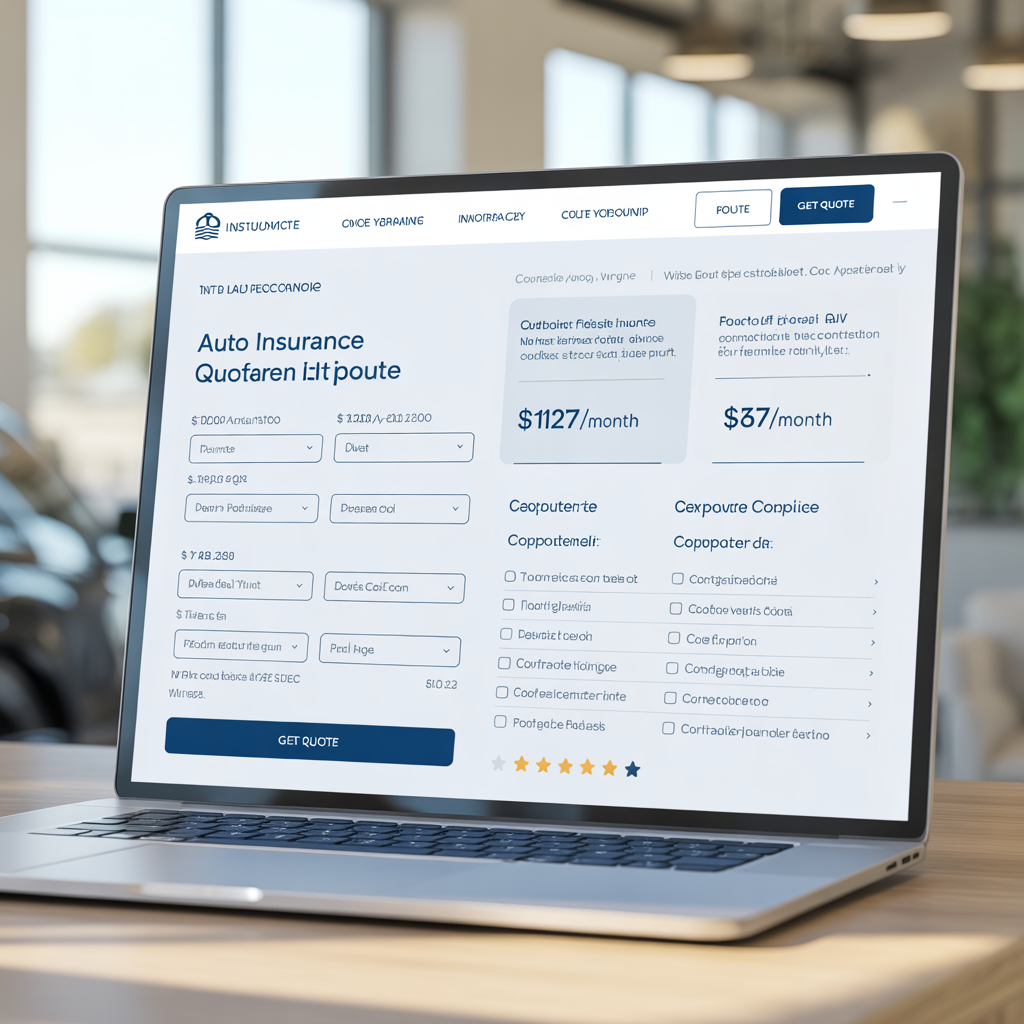
Experts recommend checking quotes every 6 to 12 months. Why? Because your circumstances change — new car, improved credit, or even moving can alter your rate.
Also, competition among insurers is fierce. Companies often adjust rates to attract customers, meaning a better deal might appear anytime.
Make it a habit — like getting a routine health checkup, but for your car budget.
Why Auto Insurance Quotes Differ Between Companies
Ever wonder why one insurer quotes you $100 per month and another $180? That’s because each company calculates risk differently.
Factors like:
- Claim history
- Regional accident data
- Customer loyalty programs
- Special partnerships
…all play a role. Think of it as restaurants serving the same dish but pricing it differently based on their recipes and ingredients.
The Importance of Reading the Fine Print
Before signing any policy, take a few moments to read the fine print. It’s easy to overlook, but it contains crucial information like:
- Coverage limits
- Exclusions
- Claim procedures
- Cancellation terms
Remember, understanding your policy fully means fewer surprises later — especially when you need it most.
Conclusion:
Getting an auto insurance quote isn’t just about finding the lowest price — it’s about making sure you and your car are truly protected. When you understand what goes into a quote, how to compare offers, and what to watch for, you gain power over your financial safety.
Think of it as building a safety net for your wheels and wallet. So next time you’re shopping for coverage, take your time, compare wisely, and choose confidently. The right quote could be your key to peace of mind on the open road.
FAQs About Auto Insurance Quotes
Q1: How long does it take to get an auto insurance quote?
A: It usually takes less than 10 minutes online. Some comparison sites provide multiple quotes instantly.
Q2: Will getting quotes affect my credit score?
A: No, most insurers use a “soft pull” that doesn’t impact your credit rating.
Q3: Can I get an auto insurance quote without a car?
A: Yes, you can get an estimated quote using the make and model of the car you plan to buy.
Q4: Are online quotes accurate?
A: They’re generally accurate but still estimates. Your final premium might change after full verification.
Q5: When is the best time to get a new auto insurance quote?
A: Every six months or after major life changes like moving, buying a new car, or improving your credit score.
